How to Make It Perfect Every Time
If you’re looking for a way to add flavor and depth to your seafood dishes, then marinades are the perfect solution. A marinade is typically a mixture of oil, acid, and spices that is used to flavor and tenderize seafood. Marinades can be used on a variety of seafood, including fish, shrimp, scallops, and more.
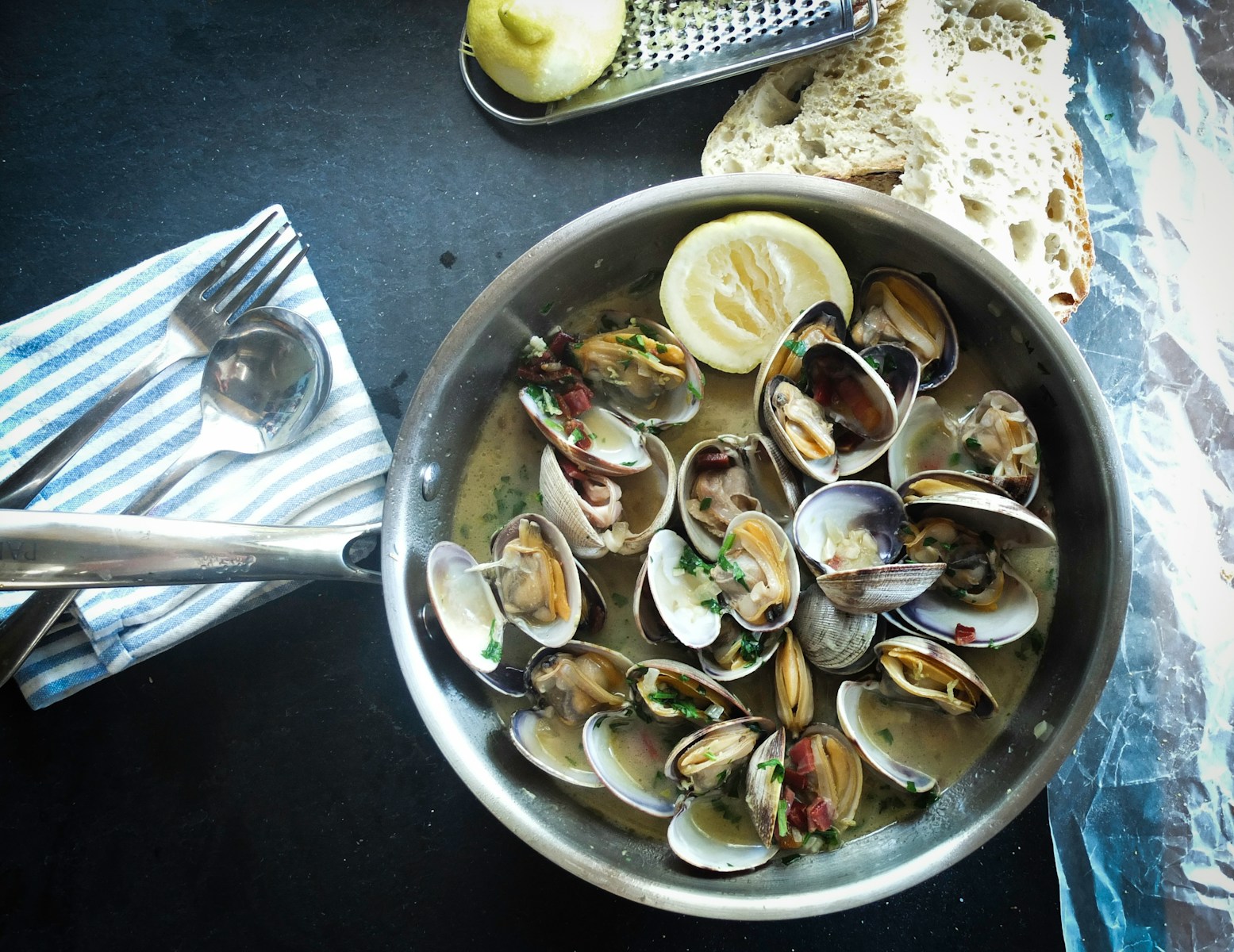
One of the benefits of using a marinade is that it can help to keep your seafood moist and tender. Acidic ingredients, such as lemon juice or vinegar, can help to break down the proteins in the seafood, making it more tender. Oil can help to keep the seafood from sticking to the grill or pan, while also adding flavor. Spices can be used to enhance the natural flavors of the seafood, or to add a new dimension of flavor.
When it comes to choosing a seafood marinade, there are endless possibilities. You can choose a classic marinade featuring lemon, garlic, and herbs, or you can get creative and try something new. Some popular marinade flavors include teriyaki, honey mustard, and Cajun. No matter what type of marinade you choose, it’s important to let the seafood marinate for at least 30 minutes to allow the flavors to penetrate the meat.
Understanding Seafood Marinades
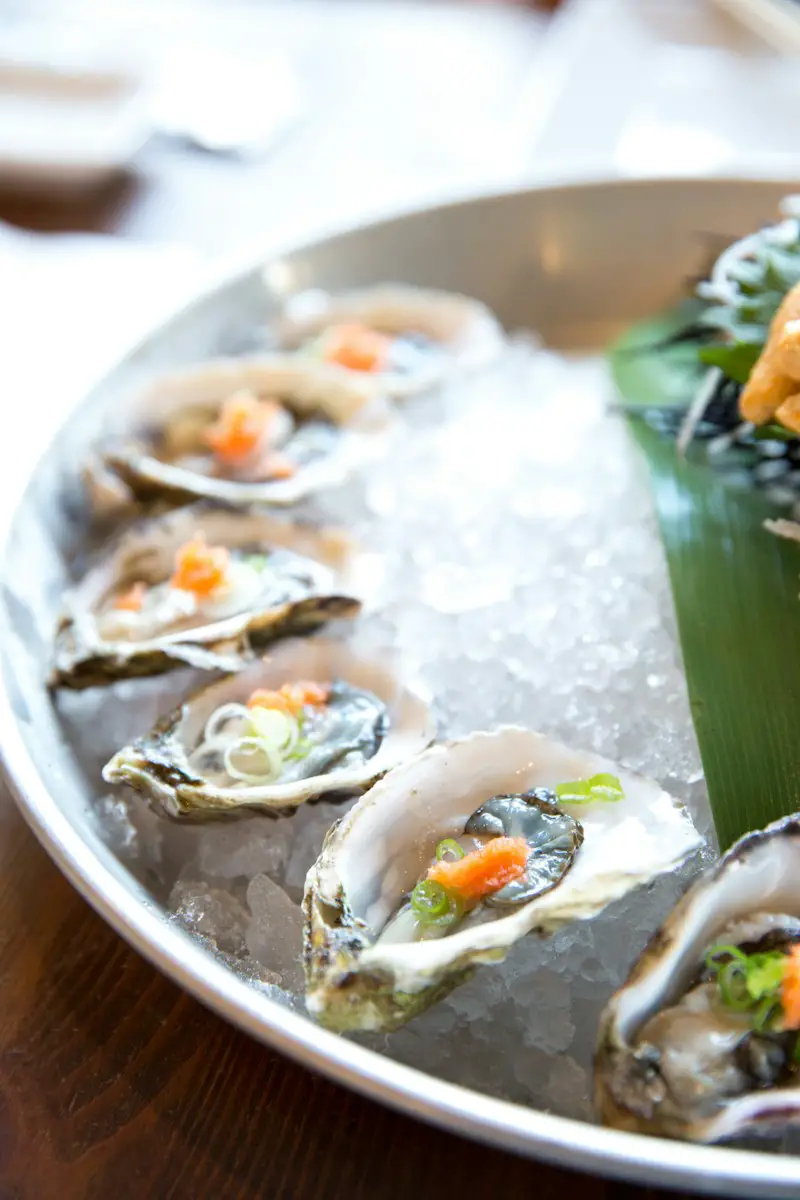
Marinades are a great way to add flavor and moisture to seafood. They are a mixture of ingredients that are used to soak seafood before cooking. Marinades can be used to add flavor, tenderize, and even preserve seafood. In this section, we will discuss the science of marinades and the types of seafood that are suitable for marinading.
The Science of Marinades
Marinades work by breaking down the connective tissues in seafood, which makes it more tender. The marinade also infuses the seafood with flavor and moisture. Most marinades contain an acid, such as vinegar or citrus juice, which helps to break down the connective tissues. Salt is another common ingredient in marinades, which helps to draw out moisture from the seafood and infuse it with flavor.
One thing to keep in mind when using marinades is that the longer you marinate the seafood, the more tender it will become. However, if you marinate seafood for too long, the acid in the marinade can actually start to break down the seafood too much, resulting in a mushy texture. It is important to follow the recommended marinating times for each type of seafood to avoid over-marinating.
Types of Seafood Suitable for Marinading
Not all types of seafood are suitable for marinading. Delicate fish like sole or tilapia can break down easily and become mushy if marinated for too long. On the other hand, firmer fish like salmon or tuna are great for marinading because they can hold up to the acidic ingredients in the marinade.
Shellfish like shrimp and scallops are also great for marinading because they cook quickly and absorb the flavors of the marinade well. However, it is important to not marinate shellfish for too long, as they can become rubbery if over-marinated.
Here is a table of some common types of seafood and their recommended marinating times:
| Seafood | Marinating Time |
|---|---|
| Salmon | 30 minutes to 1 hour |
| Tuna | 30 minutes to 1 hour |
| Shrimp | 15 minutes to 30 minutes |
| Scallops | 15 minutes to 30 minutes |
In conclusion, marinades are a great way to add flavor and moisture to seafood. By understanding the science behind marinades and the types of seafood that are suitable for marinading, you can create delicious and tender seafood dishes.
Essential Ingredients for Seafood Marinades
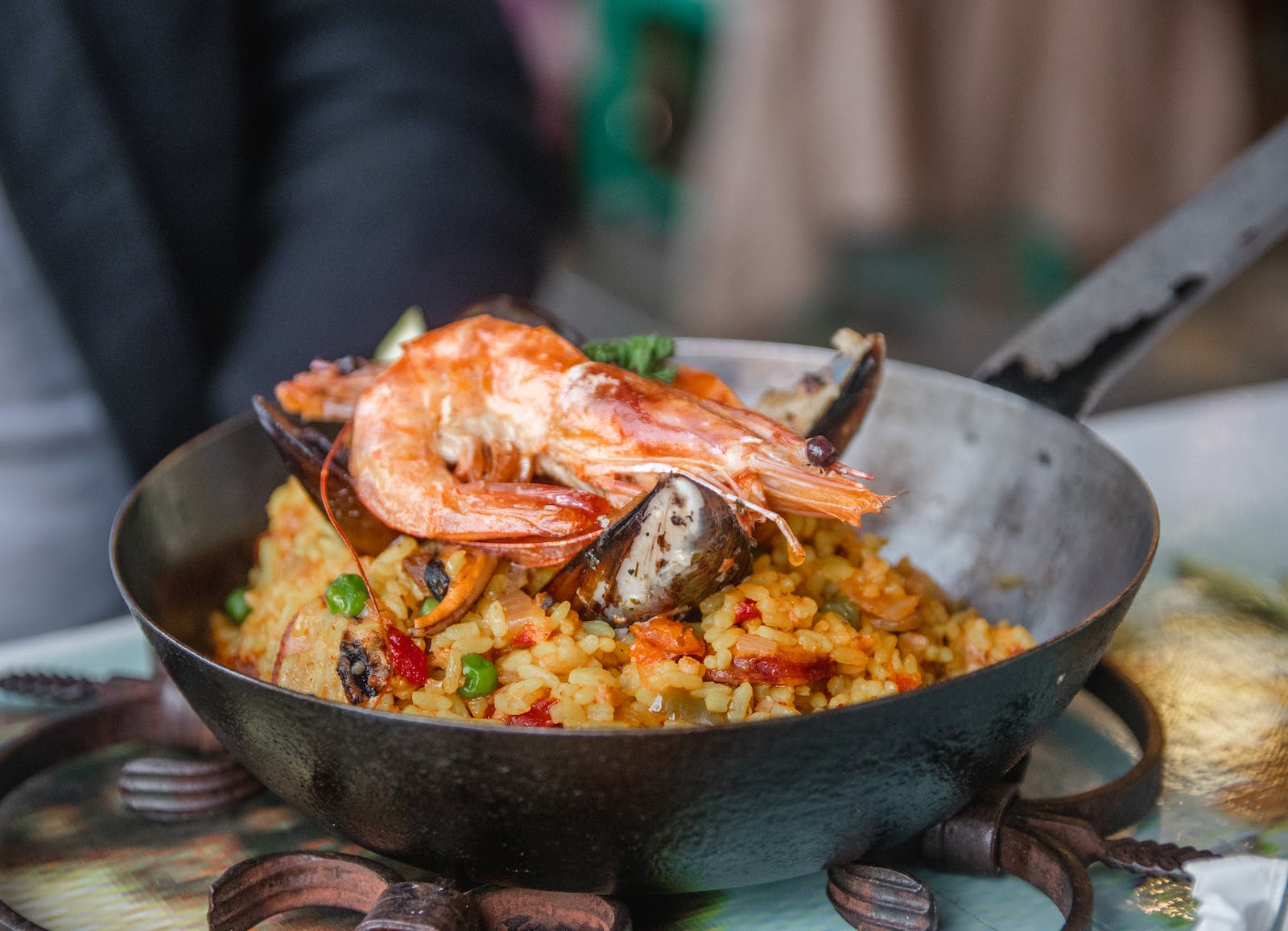
When it comes to seafood marinades, the right combination of ingredients can make all the difference. Here are some essential ingredients that you should include in your marinade:
Acidic Components
Acidic components are essential in seafood marinades as they help to break down the protein in the seafood, making it more tender and flavorful. Some popular acidic components include:
- Citrus juice (lemon, lime, orange)
- Vinegar (white, apple cider, balsamic)
- Wine (white, red)
- Yogurt
- Buttermilk
Oils and Emulsifiers
Oils and emulsifiers help to coat the seafood and keep it moist while it cooks. Some popular oils and emulsifiers include:
- Olive oil
- Vegetable oil
- Sesame oil
- Mayonnaise
- Mustard
Herbs and Spices
Herbs and spices are what give your seafood marinade its unique flavor. Some popular herbs and spices include:
- Garlic
- Ginger
- Basil
- Oregano
- Thyme
- Rosemary
- Cumin
- Paprika
- Cayenne pepper
When creating your marinade, it’s important to balance the flavors of the acidic components, oils, and herbs and spices. Too much acid can overpower the other flavors, while too much oil can make the seafood greasy. A good rule of thumb is to use a 1:2 ratio of acid to oil.
Experiment with different combinations of ingredients until you find the perfect marinade for your seafood. Remember to always marinate seafood in the refrigerator for at least 30 minutes to 1 hour before cooking to allow the flavors to penetrate the seafood.
Creating the Perfect Seafood Marinade
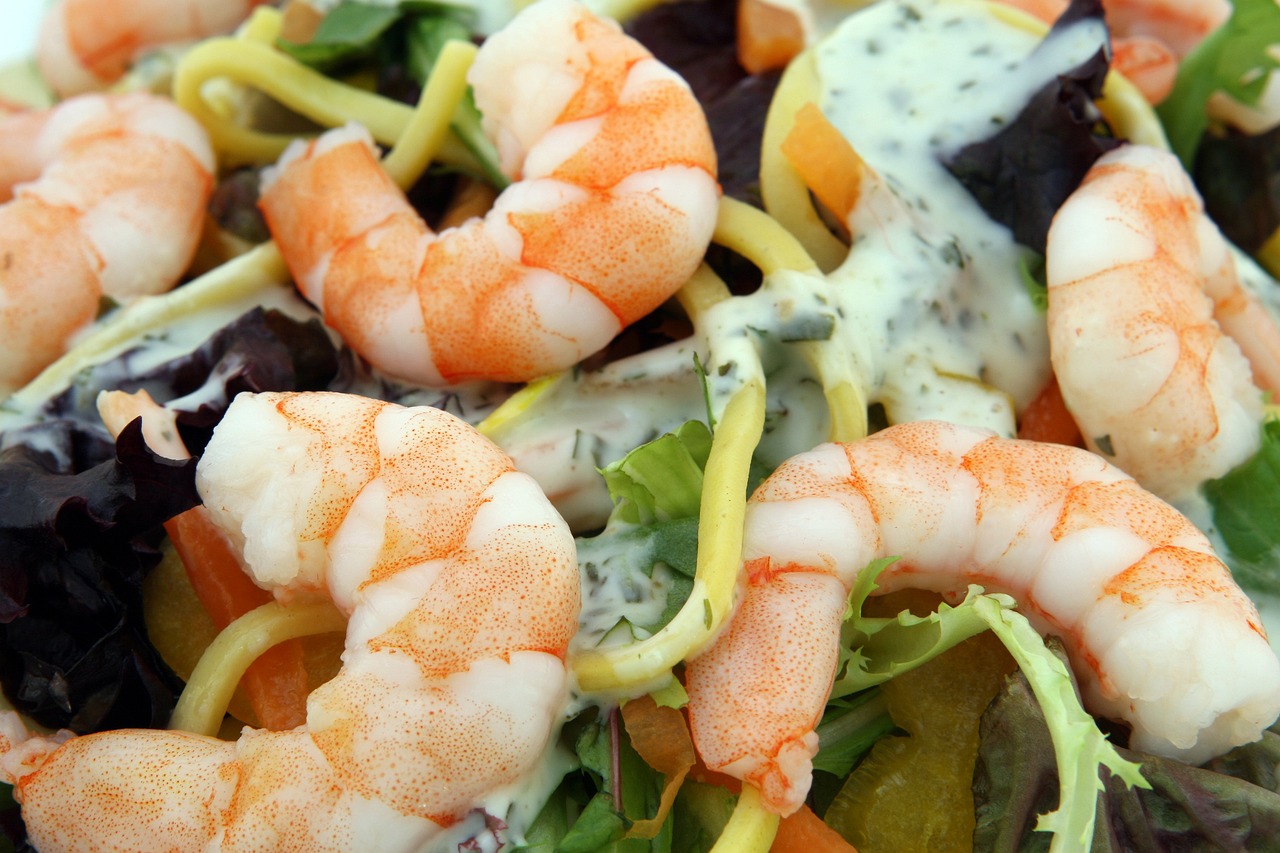
If you’re looking to take your seafood dishes to the next level, creating a marinade is a great way to do so. A good marinade can be the difference between a bland and a flavorful seafood dish. Here are some tips for creating the perfect seafood marinade.
Balancing Flavors
When creating a marinade, it’s important to balance the flavors. A good marinade should have a balance of sweet, sour, salty, and savory flavors. You can achieve this by using ingredients such as sugar, vinegar, soy sauce, and herbs.
Marinade-to-Seafood Ratios
It’s important to use the right amount of marinade for your seafood. Too little marinade and the seafood won’t absorb enough flavor, while too much marinade can overpower the seafood. As a general rule of thumb, use about 1/4 to 1/2 cup of marinade per pound of seafood.
Marination Times
The marination time can vary depending on the type of seafood and the ingredients in the marinade. As a general rule of thumb, seafood should be marinated for no more than 30 minutes to an hour. Delicate seafood such as shrimp and scallops should be marinated for no more than 15-20 minutes.
Here’s a simple recipe for a versatile seafood marinade:
Ingredients
- Soy sauce: 1/3 cup
- Olive oil: 1/4 cup
- Lemon juice: 1/4 cup
- Garlic: 2 cloves, minced
- Brown sugar: 1 tablespoon
- Salt: 1/2 teaspoon
- Black pepper: 1/4 teaspoon
Directions
- Whisk all ingredients together in a bowl.
- Pour the marinade into a sealable bag.
- Add the seafood to the bag and seal it.
- Marinate in the fridge for 30 minutes to an hour.
- Remove the seafood from the marinade and discard the marinade.
By following these tips and using a simple recipe like the one above, you can create a delicious and flavorful seafood dish that will impress your guests.
Marinade Preparation Techniques
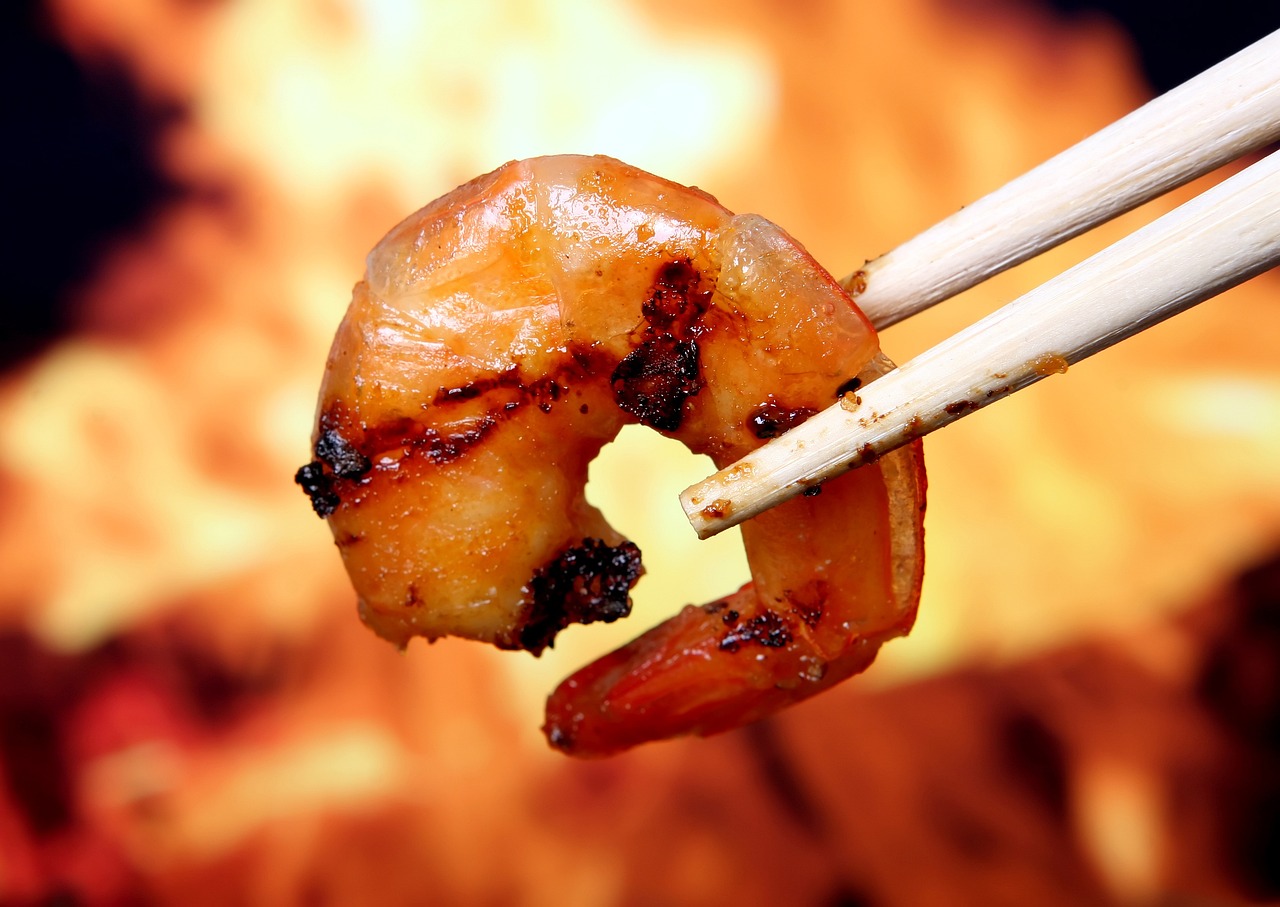
Marinades are an easy way to add flavor and moisture to your seafood dishes. However, a poorly prepared marinade can ruin the dish. Therefore, it is important to understand the different preparation techniques to ensure a successful outcome.
Mixing and Emulsifying Methods
There are two main methods for mixing marinades: whisking and blending. Whisking is the simplest method and involves combining the ingredients in a bowl and whisking them together until they are well combined. Blending, on the other hand, involves using a blender or food processor to emulsify the ingredients into a smooth mixture. This method is best for marinades that contain oil, as it helps to create a stable emulsion.
When mixing a marinade, it is important to add the ingredients in the correct order. Start with the acidic ingredients, such as lemon juice or vinegar, and then add the oil. This will help to emulsify the oil and create a smooth mixture. Next, add the seasonings and herbs, making sure to mix well.
Seasoning Adjustments
When preparing a marinade, it is important to taste it and make any necessary adjustments. If the marinade is too acidic, add a little sugar or honey to balance the flavors. If it is too salty, add more water or dilute it with more oil. If it needs more flavor, add more herbs or spices.
Remember that the longer you marinate your seafood, the more the flavors will penetrate the flesh. However, be careful not to marinate for too long, as the acid in the marinade can start to break down the proteins in the seafood and make it tough.
In summary, whisking and blending are the two main methods for mixing marinades, and it is important to add the ingredients in the correct order. Taste the marinade and make any necessary adjustments before using it. Finally, be mindful of marinating times to ensure the best possible outcome.
Application of Seafood Marinades
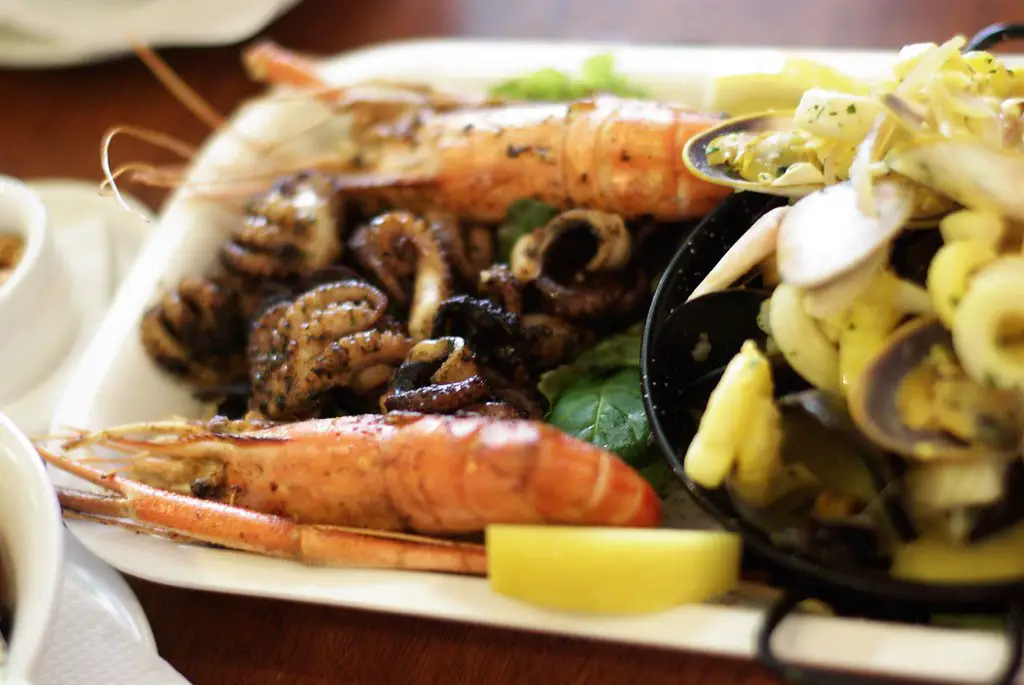
When it comes to applying marinades to seafood, there are a few methods to choose from. The following subsections will cover brushing and coating methods as well as marinating containers and tools.
Brushing and Coating Methods
Brushing and coating methods are ideal for seafood that is being grilled, broiled, or baked. You can use a basting brush to apply the marinade to the seafood as it cooks. This method is great for seafood like shrimp, scallops, and fish fillets. Alternatively, you can use a spoon to drizzle the marinade over the seafood. This method is ideal for seafood like oysters and clams.
Marinating Containers and Tools
When it comes to marinating seafood, it is important to use the right container and tools. A glass or plastic container with a lid is ideal for marinating seafood. The container should be large enough to hold the seafood and the marinade. You can also use a resealable plastic bag for marinating seafood. This method is ideal for seafood like shrimp and fish fillets.
It is important to use non-reactive containers like glass or plastic when marinating seafood. Reactive containers like aluminum or cast iron can react with the acid in the marinade and give the seafood an off-flavor. Additionally, it is important to use non-reactive tools like plastic or silicone when handling seafood in marinades.
In conclusion, brushing and coating methods are ideal for seafood that is being grilled, broiled, or baked. When it comes to marinating seafood, it is important to use the right container and tools to avoid off-flavors.
Cooking Techniques for Marinated Seafood
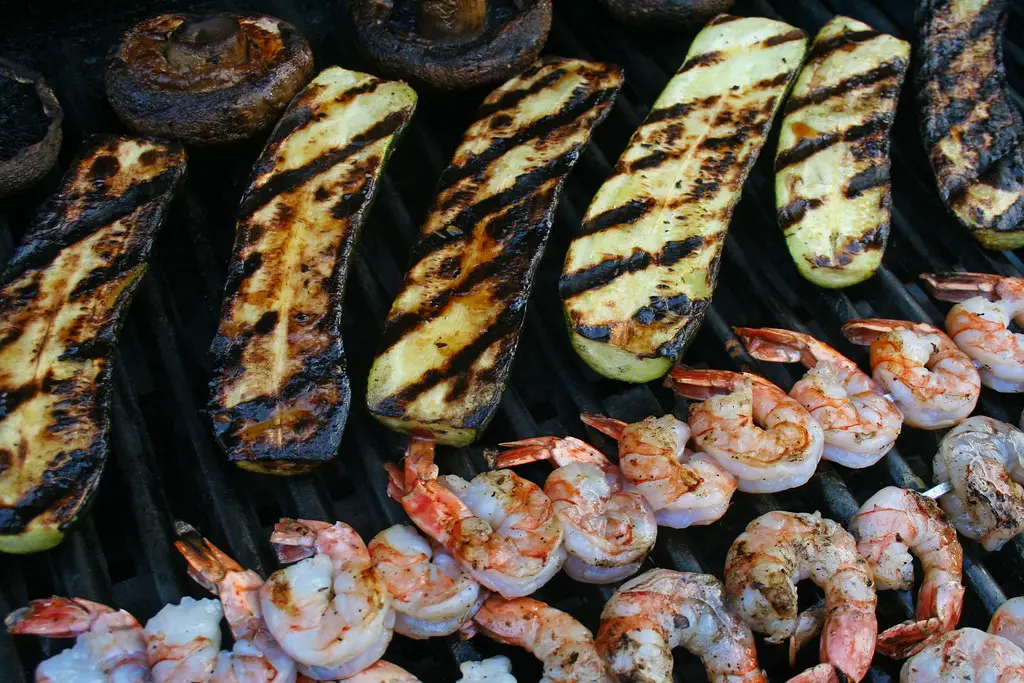
Marinating seafood is a great way to add flavor and moisture to your dishes. But how do you cook it once it’s marinated? Here are some popular techniques to get the most out of your marinated seafood.
Grilling and Broiling
Grilling and broiling are popular methods for cooking marinated seafood. The high heat of the grill or broiler caramelizes the sugars in the marinade, creating a delicious crust on the outside of the seafood. It also imparts a smoky flavor that complements the marinade.
To grill or broil marinated seafood, preheat your grill or broiler to high heat. Remove the seafood from the marinade and pat it dry with paper towels. Brush the seafood with oil to prevent sticking. Grill or broil the seafood for a few minutes on each side until it’s cooked through and has a nice char.
Baking and Roasting
Baking and roasting are great techniques for cooking marinated seafood in the oven. These methods are ideal for larger cuts of seafood, such as whole fish or fillets. Baking and roasting are also great for seafood that is too delicate for grilling or broiling.
To bake or roast marinated seafood, preheat your oven to 375°F (190°C). Place the marinated seafood on a baking sheet and bake for 12-15 minutes, or until it’s opaque and flakes easily with a fork.
Sautéing and Pan Frying
Sautéing and pan frying are great methods for cooking marinated seafood on the stovetop. These methods are ideal for smaller cuts of seafood, such as shrimp or scallops. Sautéing and pan frying are also great for seafood that is too delicate for grilling or broiling.
To sauté or pan fry marinated seafood, heat a skillet over medium-high heat and add a little oil. Remove the seafood from the marinade and pat it dry with paper towels. Add the seafood to the skillet and cook for a few minutes on each side until it’s cooked through and has a nice crust.
Overall, there are many ways to cook marinated seafood. Whether you choose to grill, broil, bake, roast, sauté, or pan fry, the key is to use high-quality seafood and a flavorful marinade to create a delicious and healthy meal.
Here is a great recipe for grilled marinated shrimp, here is a recipe for baked salmon, and here is a recipe for pan-fried marinated scallops.
Safety Considerations for Seafood Marinades
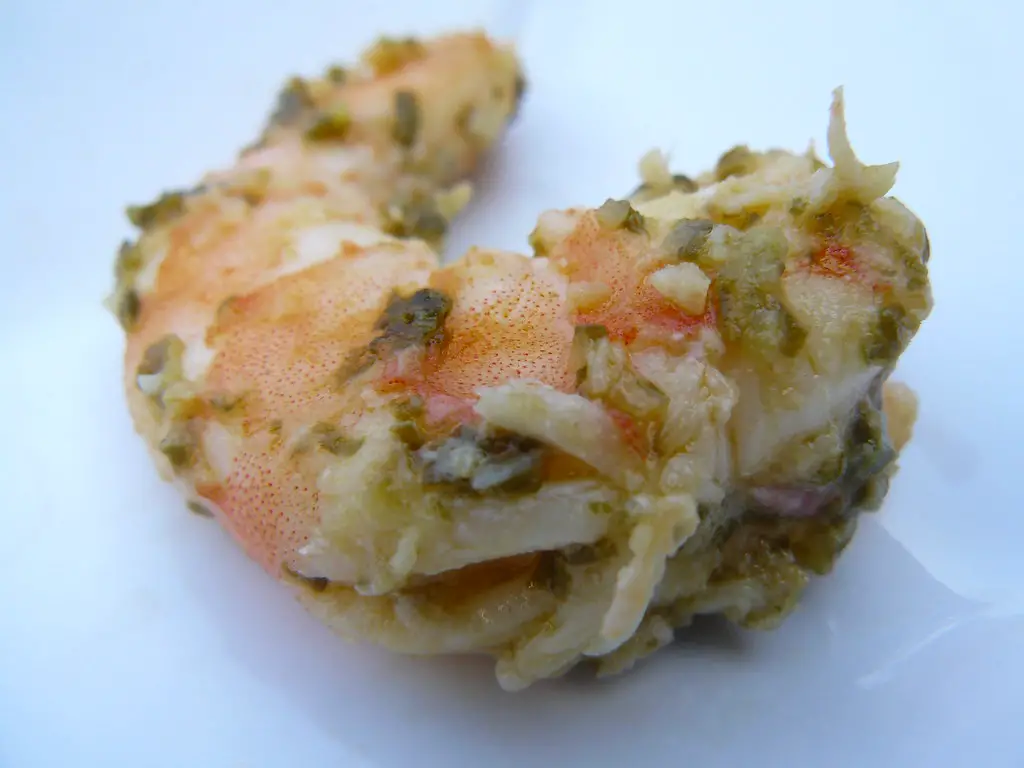
When marinating seafood, there are some important safety considerations you need to keep in mind to prevent foodborne illness. In this section, we will discuss two key areas of concern: cross-contamination risks and proper storage and handling.
Cross-Contamination Risks
Cross-contamination is a major concern when marinating seafood. Raw seafood can contain harmful bacteria, and if it comes into contact with other foods, it can spread these bacteria and cause illness. To prevent cross-contamination, follow these guidelines:
- Always use separate cutting boards, utensils, and containers for raw seafood and other foods.
- Wash your hands thoroughly with soap and water before and after handling raw seafood.
- Clean all surfaces and utensils that come into contact with raw seafood with hot, soapy water.
- Never reuse marinade that has come into contact with raw seafood. If you want to use the marinade as a sauce, be sure to boil it first to kill any bacteria.
Proper Storage and Handling
Proper storage and handling of seafood is crucial to prevent the growth of harmful bacteria. Here are some tips to keep in mind when marinating seafood:
- Always marinate seafood in the refrigerator, not at room temperature.
- Use a non-reactive container, such as glass or plastic, to marinate seafood. Avoid using metal containers, as the acid in the marinade can react with the metal and affect the taste of the seafood.
- If you plan to reuse marinade, be sure to boil it first to kill any bacteria.
- Don’t marinate seafood for too long. Seafood is delicate and can become mushy if left in the marinade for too long. As a general rule, marinate seafood for no more than 30 minutes to an hour.
By following these safety considerations, you can enjoy delicious and flavorful marinated seafood without putting yourself or your guests at risk of foodborne illness.
Pairing Seafood Marinades with Dishes
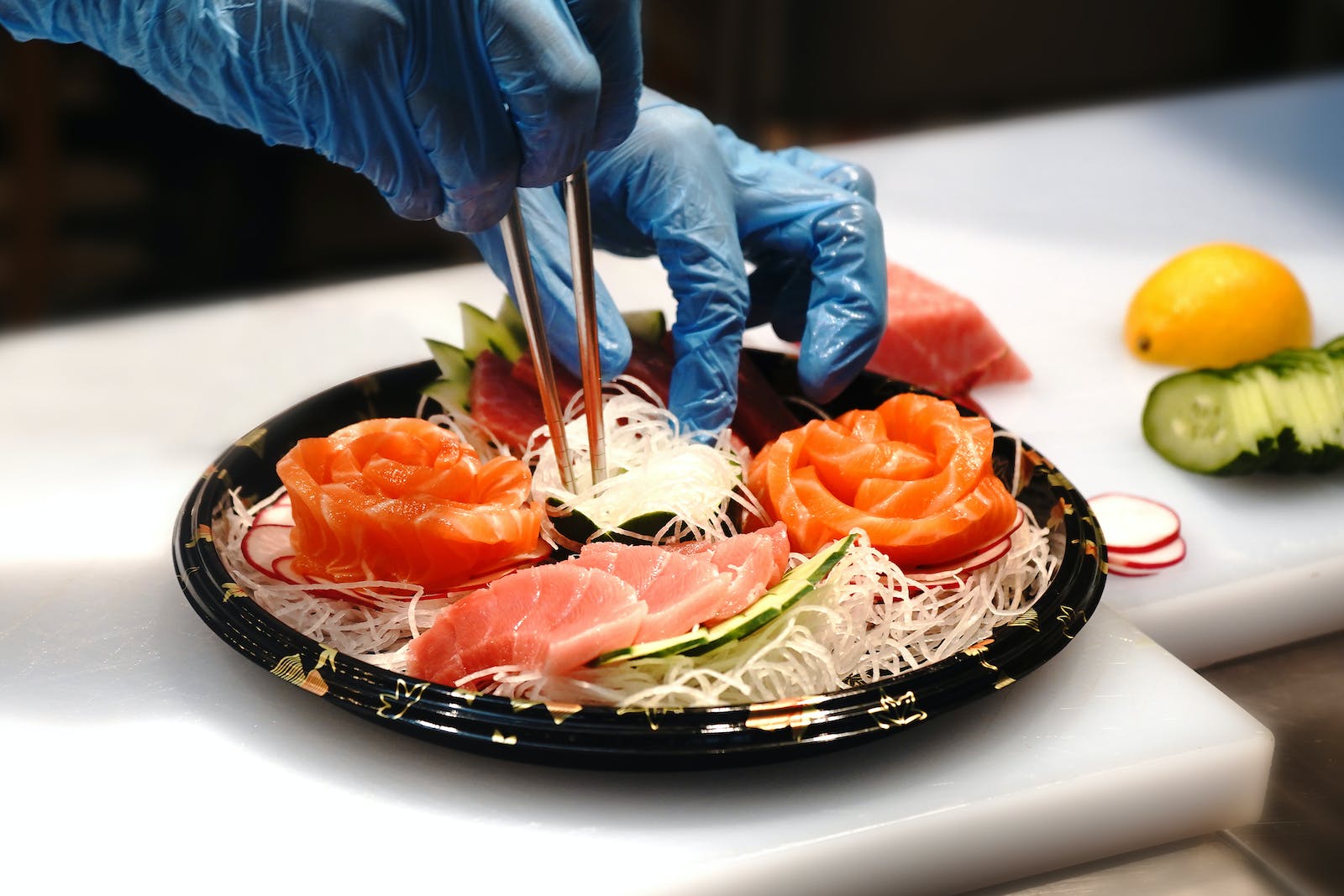
When it comes to pairing seafood marinades with dishes, there are a few things to consider. The marinade should complement the flavor of the seafood and enhance its natural taste, rather than overpower it. Additionally, the marinade should also pair well with the side dishes and drinks that you plan to serve with the seafood. Here are some tips to help you pair seafood marinades with dishes.
Complementary Side Dishes
When choosing side dishes to serve with seafood, consider the flavors and ingredients in the marinade. For example, if you are using a citrus-based marinade, you may want to pair it with a side dish that also has citrus flavors, such as a salad with oranges or a citrus rice pilaf. If the marinade has a spicy kick to it, consider serving it with a cooling side dish, such as cucumber salad or coleslaw.
Another thing to consider is the texture of the side dish. If the seafood is grilled or fried, consider serving it with a side dish that is soft or creamy, such as mashed potatoes or a creamy pasta salad. If the seafood is baked or broiled, consider serving it with a side dish that is crunchy or crispy, such as roasted vegetables or garlic bread.
Wine and Beverage Pairings
Pairing the right wine or beverage with your seafood dish can elevate the flavors and make for a more enjoyable dining experience. When it comes to pairing wine with seafood, consider the type of seafood and the marinade that you are using. For example, a light-bodied white wine, such as Pinot Grigio or Sauvignon Blanc, pairs well with delicate fish such as cod or sole. A full-bodied white wine, such as Chardonnay, pairs well with rich and flavorful fish such as salmon.
If you prefer to serve beer or cocktails with your seafood, consider the flavors in the marinade. A citrus-based marinade pairs well with a light beer or a margarita, while a spicy marinade pairs well with a hoppy IPA or a Bloody Mary.
In conclusion, pairing seafood marinades with dishes is all about finding complementary flavors and textures. By considering the marinade, the seafood, and the side dishes and drinks, you can create a well-balanced and delicious meal that will impress your guests.
Innovative Seafood Marinade Recipes
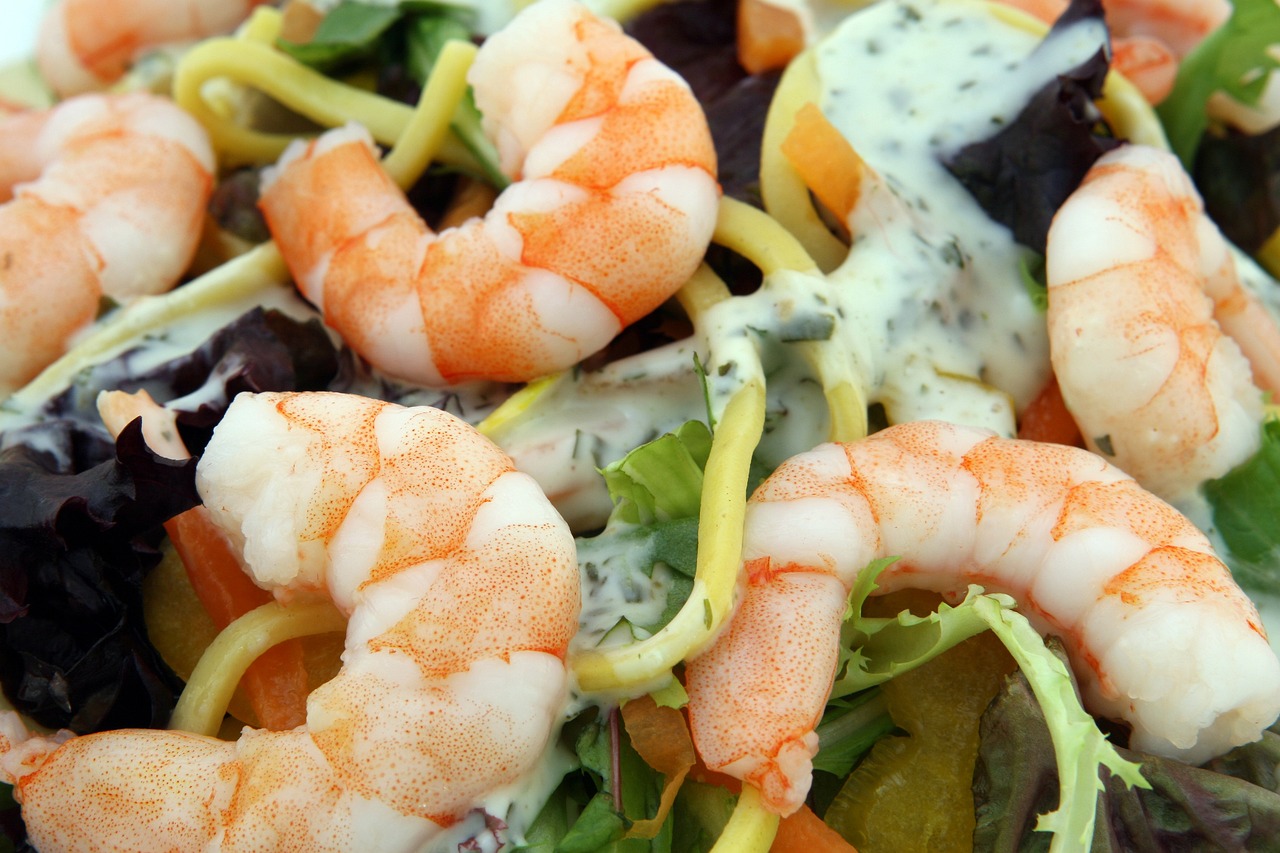
If you’re tired of the same old seafood marinades, it’s time to try something new! Here are some innovative seafood marinade recipes that will take your taste buds on a journey.
Classic Marinade Recipes
Classic marinades are always a good go-to, and these recipes are no exception. Try a simple lemon and herb marinade for your fish fillets. Combine fresh lemon juice, olive oil, garlic, salt, and pepper in a bowl. Add your fish fillets and marinate for at least 30 minutes before cooking. This marinade works best with white fish like cod, halibut, or tilapia.
For shrimp, try a classic garlic and butter marinade. Melt butter in a pan and add minced garlic, lemon juice, salt, and pepper. Add the shrimp and marinate for at least 30 minutes. Grill or sauté the shrimp until they turn pink.
Contemporary Fusion Marinades
If you’re looking for something a bit more contemporary, try these fusion marinades. For a Mexican-inspired marinade, combine lime juice, chili powder, cumin, garlic, and olive oil. This marinade works well with shrimp or fish and can be used for tacos or fajitas.
For an Asian-inspired marinade, try a soy sauce and ginger marinade. Combine soy sauce, ginger, garlic, honey, and sesame oil in a bowl. Add your fish or shrimp and marinate for at least 30 minutes. Grill or pan-sear the seafood and serve with rice or noodles.
These innovative marinade recipes are sure to impress your taste buds and make your seafood dishes stand out. Don’t be afraid to experiment with different flavors and ingredients to create your own unique marinades.
Marinade Variations for Dietary Restrictions
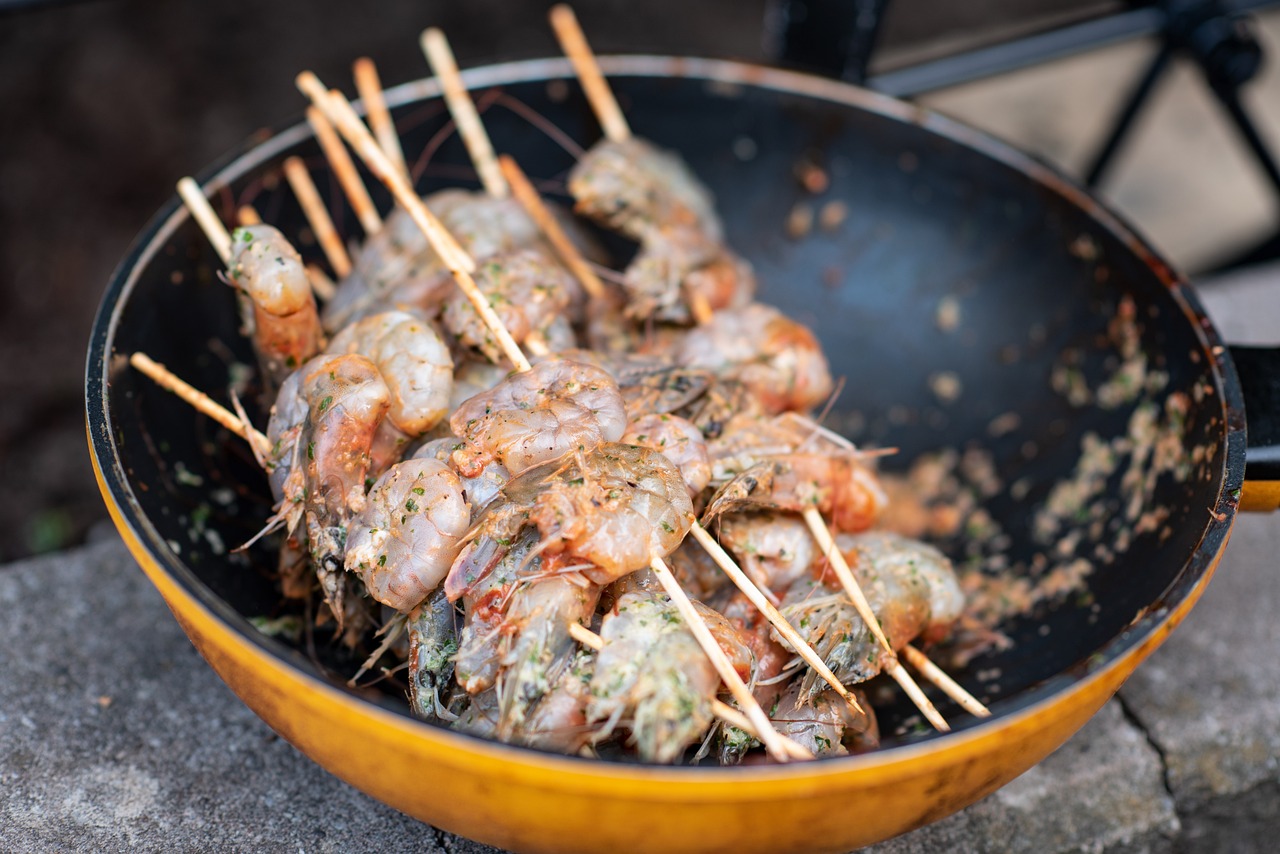
If you have dietary restrictions, you may be wondering if you can still enjoy the delicious flavors of marinated seafood. The good news is that there are many marinade variations that can accommodate your dietary needs. Here are some options to consider:
Gluten-Free Options
If you are gluten-free, you will want to avoid marinades that contain soy sauce or other wheat-based ingredients. Instead, try using tamari sauce, which is a gluten-free alternative to soy sauce. You can also make your own marinade using ingredients like olive oil, lemon juice, garlic, and herbs. Here is a simple gluten-free marinade recipe:
- 1/4 cup olive oil
- 2 tablespoons lemon juice
- 2 cloves garlic, minced
- 1 tablespoon chopped fresh parsley
- Salt and pepper to taste
Mix all ingredients together and marinate your seafood for at least 30 minutes before cooking.
Low-Sodium Alternatives
If you are watching your sodium intake, you may want to avoid marinades that are high in salt. Instead, try using citrus juices, vinegar, or herbs and spices to flavor your seafood. Here is a low-sodium marinade recipe:
- 1/4 cup orange juice
- 2 tablespoons lime juice
- 1 tablespoon honey
- 1 clove garlic, minced
- 1/2 teaspoon ground cumin
- 1/4 teaspoon ground black pepper
Mix all ingredients together and marinate your seafood for at least 30 minutes before cooking.
Vegan and Vegetarian Marinades
If you are vegan or vegetarian, you may want to avoid marinades that contain animal products like fish sauce or Worcestershire sauce. Instead, try using ingredients like soy sauce, miso paste, or nutritional yeast to add flavor to your marinade. Here is a vegan marinade recipe:
- 1/4 cup soy sauce
- 2 tablespoons rice vinegar
- 1 tablespoon maple syrup
- 1 tablespoon sesame oil
- 1 clove garlic, minced
- 1/2 teaspoon ground ginger
Mix all ingredients together and marinate your seafood substitute for at least 30 minutes before cooking.
Remember to always check the ingredients of pre-made marinades and sauces to ensure they meet your dietary needs. With these marinade variations, you can enjoy delicious seafood without compromising your health or dietary restrictions.
Storing and Preserving Seafood Marinades
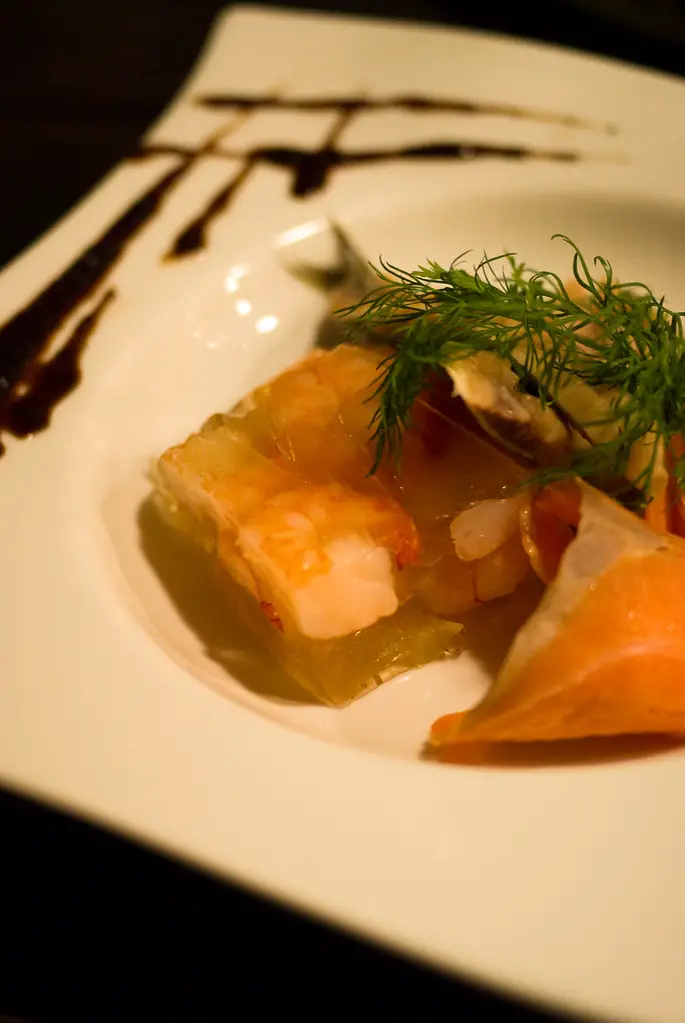
When it comes to seafood marinades, proper storage and preservation are essential to keep the flavors intact and prevent any contamination. Here are some tips on how to store and preserve seafood marinades:
Refrigeration Tips
Refrigeration is the most common method of storing seafood marinades. Here are some tips to ensure your marinades stay fresh:
- Always store your marinades in airtight containers to prevent any air exposure that can cause spoilage.
- Keep your marinades in the refrigerator at a temperature between 35°F to 40°F (1.7°C to 4.4°C). This temperature range helps to slow down bacterial growth and keep your marinade fresh for a longer time.
- Marinate seafood for no more than four hours at room temperature, and seafood marinated for longer than four hours must be stored in the chiller during the marinating process.
Freezing Techniques
Freezing seafood marinades is an excellent way to preserve them for longer periods. Here are some tips to freeze your marinades correctly:
- Always freeze your marinades in airtight containers or freezer bags to prevent freezer burn or contamination.
- Label your containers with the type of marinade and the date of freezing to keep track of its freshness.
- Freeze your marinades for up to three months to maintain the best quality. After that, the marinade may lose its flavor and texture.
In conclusion, proper storage and preservation of seafood marinades are essential to maintaining their flavors and preventing any contamination. By following these tips, you can ensure that your marinades stay fresh and tasty for longer periods.
Frequently Asked Questions

What ingredients are essential for a successful seafood marinade?
A successful seafood marinade requires a balance of acid, oil, and flavorings. Acidic ingredients like citrus juice or vinegar help to tenderize the seafood and add brightness to the flavor. Oil helps to keep the seafood from sticking to the grill or pan and adds richness to the marinade. Flavorings can include herbs, spices, and aromatics like garlic or ginger.
How long is the ideal time to marinate seafood for grilling?
The ideal time to marinate seafood for grilling depends on the type of seafood and the strength of the marinade. Delicate seafood like shrimp or scallops only need to be marinated for 15-30 minutes, while firmer fish like salmon or tuna can be marinated for up to 2 hours. Avoid marinating seafood for too long, as the acid can start to break down the proteins and affect the texture.
Can you recommend a simple yet flavorful recipe for marinating seafood?
One simple yet flavorful recipe for marinating seafood is a garlic and herb marinade. Combine minced garlic, chopped fresh herbs like parsley and thyme, olive oil, and lemon juice in a bowl. Season with salt and pepper to taste, then toss with your seafood of choice and marinate for 30 minutes before grilling.
What are the consequences of marinating seafood for too long?
Marinating seafood for too long can cause the acid in the marinade to break down the proteins in the seafood, resulting in a mushy texture. It can also cause the seafood to become too acidic, which can overpower the natural flavor of the seafood. Stick to the recommended marinating times for best results.
How can I prepare a marinade suitable for seafood skewers?
To prepare a marinade suitable for seafood skewers, start with a base of olive oil and lemon juice. Add minced garlic, chopped fresh herbs like rosemary and thyme, and a pinch of red pepper flakes for heat. Season with salt and pepper to taste, then toss with your seafood and vegetables of choice and marinate for 30 minutes before skewering and grilling.
What is the maximum duration shrimp can be marinated before it affects the texture?
Shrimp can be marinated for up to 30 minutes before it affects the texture. Any longer than that, and the acid in the marinade can start to break down the proteins and affect the texture of the shrimp.
External Links

If you want to learn more about seafood marinades, here are some external links that might be helpful:
- FishEx Seafoods offers a variety of seafood marinade recipes that you can try at home. From garlic-red pepper marinade to ginger-soy marinade, you’ll find a recipe that suits your taste buds.
- Global Seafoods provides tips on how to master fish and seafood marinades. You’ll learn about the magic of marinades, balancing acidity, oil, and seasonings, and how to prevent fish from becoming mushy.
- Dish on Fish offers mouthwatering marinades for every type of seafood. Their lemon-herb marinade is perfect for delicate fish like salmon, and their honey-lime marinade is great for shrimp.
- The Gracious Pantry has a clean eating seafood marinade recipe that works with almost any type of seafood. Made with olive oil, lemon juice, Dijon mustard, garlic, and herbs, this marinade is simple yet delicious.
- Fit Foodie Finds has an easy grilled shrimp marinade recipe that is herby, citrusy, and savory with a hint of lemon and garlic. It’s great for grilling, baking, or pan frying.
Whether you’re a seafood lover or just looking to try something new, these external links will provide you with the inspiration and guidance you need to create delicious seafood marinades.
More FAQs
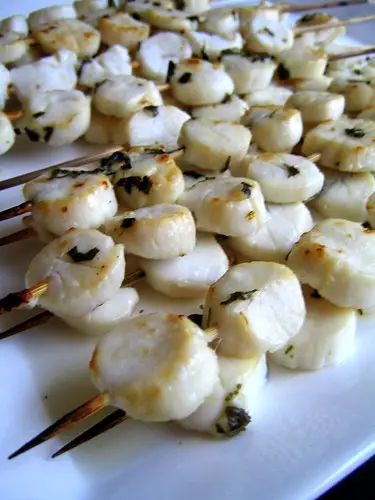
What is used in marinating seafood?
Marinades for seafood can be made with a variety of ingredients such as herbs, spices, oils, vinegar, citrus juices, soy sauce, and wine. The ingredients used in a marinade depend on personal preference and the type of seafood being marinated. Some people prefer to use a combination of flavors and ingredients to create a unique and delicious marinade.
How long can seafood marinate?
It is important not to marinate seafood for too long as it can break down the proteins and change the texture of the fish. The amount of time seafood should marinate varies depending on the type of fish and the marinade used. As a general rule, most seafood should be marinated for no more than 30 minutes to an hour. However, some denser fish like salmon can be marinated for up to 24 hours.
What makes a marinade good?
A good marinade should enhance the flavor of the seafood without overpowering it. The marinade should also tenderize the fish and make it more moist. A good marinade should have a balance of acid, oil, and flavorings. The acid in the marinade helps to break down the proteins in the fish, making it more tender. The oil in the marinade helps to keep the fish moist and prevent it from sticking to the grill or pan.
What happens when you marinate fish?
When you marinate fish, the acid in the marinade breaks down the proteins in the fish, making it more tender. The marinade also adds flavor to the fish and can help to keep it moist. However, it is important not to marinate fish for too long, as it can break down the proteins too much and change the texture of the fish.
In summary, a good seafood marinade should have a balance of acid, oil, and flavorings. The amount of time seafood should marinate varies depending on the type of fish and the marinade used. It is important not to marinate seafood for too long as it can break down the proteins and change the texture of the fish.
Conclusion
Seafood marinade recipes are a great way to add flavor and moisture to a variety of seafood dishes. By combining ingredients such as lemon juice, garlic, herbs, and olive oil, a marinade can infuse the seafood with delicious flavors and help to tenderize it.
The key is to balance the flavors and not overpower the delicate taste of the seafood. Overall, a carefully crafted seafood marinade recipe can elevate the overall dining experience and bring out the best in the seafood dish.

Citrus-Garlic Seafood Marinade
Ingredients
- 1/4 cup olive oil
- 1/4 cup fresh lemon juice
- 2 tablespoons orange juice
- 3 cloves garlic, minced
- 1 teaspoon lemon zest
- 1 teaspoon orange zest
- 1 tablespoon fresh parsley, chopped
- 1 teaspoon dried oregano
- 1/2 teaspoon paprika
- Salt and pepper to taste1 pound seafood (shrimp, scallops, or your choice)
Instructions
- In a bowl, whisk together olive oil, lemon juice, orange juice, minced garlic, lemon zest, orange zest, chopped parsley, dried oregano, paprika, salt, and pepper.
- Place the seafood in a resealable plastic bag or shallow dish.
- Pour the marinade over the seafood, making sure it is well-coated.
- Seal the bag or cover the dish and refrigerate for at least 30 minutes to marinate, or overnight for more flavor.
- Preheat the grill or a grill pan over medium-high heat.
- Thread seafood onto skewers if desired.
- Grill seafood for 2-3 minutes per side or until cooked through.
- Serve immediately and enjoy!
Notes

